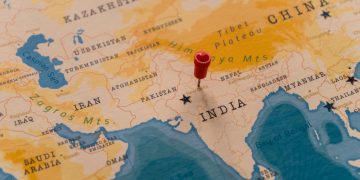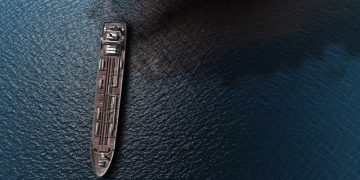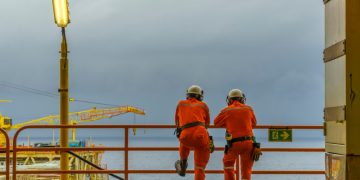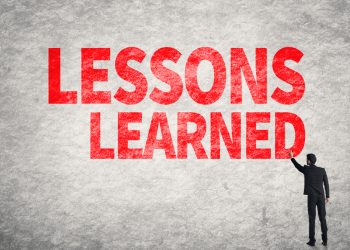Captain Andre LeGoubin highlights the critical role of mentoring in the evolving maritime industry. Drawing from decades of experience, he shares his key insights and offers practical advice for those guiding the next generation of seafarers.
The ocean has always been a challenging working environment. Today, it is also one where fast-changing technology and the introduction of novel fuels require new skills from newcomers and experienced seafarers alike. The key to learning how to handle change and thrive in this new environment is one of the most time-honoured maritime traditions. It is sharing experiential knowledge in the moment – otherwise known as mentoring.
Whether for newcomers coming on board for the first time, or for those who have been at sea for a while and are dealing with new technologies and new ways of working, learning from those working alongside us who already have those skills is vital. Throughout my career, I’ve witnessed how passing knowledge between seafarers not only helps cadets handle the complexities of life at sea, and junior officers learn to handle ships, but helps more senior officers get a grasp on new technology. In today’s changing times, mentoring is needed more than ever. But we need to make sure that seafarers recognise the importance of this approach and are empowered to do it. It’s a simple tool that can make so much difference.
And we certainly are in rapidly changing times. Our industry is working toward IMO decarbonisation targets, embracing a more diverse workforce, and adopting new technologies that require new skills and ways of working. The way we support seafarers must evolve to ensure crews can continue to deliver safe operations.
No matter the operating environment, technologies, or fuels in use, safety must always remain at the core of life at sea. This is where an informal system of mentoring comes in.
What does mentoring look like in practice?
One of my most significant learning experiences was navigating through extreme heavy weather in the North Atlantic in 1986. As a third officer at the time, I took on invaluable lessons by observing the ship’s Master during that storm and how he kept us safe. This wasn’t part of my formal training but a natural passing of knowledge shaped by real-time decisions made under extreme pressure.
Encouraging an environment where mentoring takes place naturally is vital. For example, simply by standing on deck and discussing what I can see and how I am using these cues to practice visual navigation, rather than relying solely on ECDIS, I may attract the attention of other colleagues. This opens the door to discussions about the fundamentals of navigation or collision avoidance – or the different technologies that we have worked with on different ships.
Voluntary, informal mentoring of this kind not only helps to develop key technical skills, but also a personal connection that makes it a really meaningful exchange.
The new and the old
I often discuss the importance of balancing technology with seafaring fundamentals. While modern tools are invaluable, they should not replace foundational skills. For example, with automated navigation systems, seafarers now rely heavily on technology to perform tasks that once required manual calculations. However, this reliance on technology can create risks if traditional skills and situational awareness are neglected – such as ignoring your surroundings and focusing purely on data presented on screens that can still be open to error.
Masters must ensure that watchkeeping officers understand not only how to operate new systems but also how to react when those systems fail.
Mentoring is an excellent way to remind people that navigation isn’t just about pushing buttons; it’s about knowing what to do when the technology doesn’t work as expected or is giving false data.
Teaching cadets modern and traditional navigation techniques enables them to handle unforeseen challenges when they become watch keeping officers.
Mentoring in this context isn’t just about transferring knowledge, but about cultivating a mindset of adaptability for both mentees and the mentor. The individuals imparting knowledge will need to take on board the different pressures felt by seafarers, the tools they use, and what advice most benefits them, rather than getting stuck in the mindset that ‘this was the way it was always done’.
This requires openness from the mentee, too. It’s important for seafarers well-versed in automated and manual systems to understand the value of seeking out and applying knowledge from mentors with more experience, even if they have worked with different onboard systems and processes. In the same way, junior officers who have worked with different systems, maybe with novel fuels, might have the opportunity to educate their peers on technology which is new to them. Mentoring can work both ways!
Cultural barriers
Ships are now more multinational than ever, and that means working with colleagues from a wide variety of cultures, languages, and backgrounds. While there are concerns that these differences can create barriers to effective mentoring, I’ve found that cultural diversity often enriches the mentoring experience.
The importance of diversity, equity, and inclusion cannot be overstated in today’s maritime working environment. Crews are made up of people from a wide range of ethnicities, genders, and cultural backgrounds, and as mentors, we need to adapt to each individual’s specific needs. Effective mentoring is about understanding, accepting, and engaging with each person’s unique experiences and adjusting our approach accordingly.
I’ve mentored seafarers from all over the world, and despite cultural differences, we find common ground in our shared experiences at sea. The sea has a way of levelling out differences; it unites us through the challenges we face together. By fostering an environment of mutual respect, mentors can overcome barriers and create a more cohesive, inclusive team.
Mentoring, in this sense, goes beyond technical knowledge. It’s about showing seafarers that despite coming from different backgrounds, they are all part of the same maritime community. This sense of belonging is crucial in building a positive and collaborative atmosphere on board and will contribute to safer working practices as the team will communicate better.
Creating an inclusive environment on a multinational crewed ship can begin as simply as speaking in a common language, not just during critical work discussions but also in more casual work discussions and in social areas. My experience on board a tanker offshore in South America left me with no doubt of its value. I was with a Greek Master and officers, and a Filipino cadet. The Master, familiar with my work, had introduced mentoring on the vessel. After a talk on mentoring, I asked the cadet about language barriers. He said, “Oh, that’s no problem, Sir. They all speak English when I’m on the bridge.” That one comment made all my efforts in mentoring worthwhile. It showed that the crew were building a cohesive, supportive environment where everyone could contribute fully.
Real-world experience
Mentoring is a fantastic tool, and I hope I’ve shown you how something of its value. But it can only help if people have the opportunity to engage in it by actually being on board ship.
As someone who has benefited immensely from hands-on experience at sea, I believe it is the industry’s duty to provide cadets with opportunities to gain real-world experience. We cannot expect the next generation of seafarers to succeed without giving them the chance to put their training into practice. Securing berths for cadets is more than just a stepping stone—it’s a critical part of their development. If we want to safeguard the future of our industry, we must invest in these young people today by giving them the opportunity to learn at sea. We can do this by ensuring that every cadet that wants to go to sea has the opportunity to sail, and to gain that experiential knowledge for themselves
Real-world experience is invaluable for any seafarer progressing through the ranks. By participating in and learning from real-life situations, cadets develop the skills and confidence they need to become capable officers, and to pass on their own experiential gains in turn.
The views presented are only those of the authors and do not necessarily reflect those of SAFETY4SEA and are for information sharing and discussion purposes only.




























































